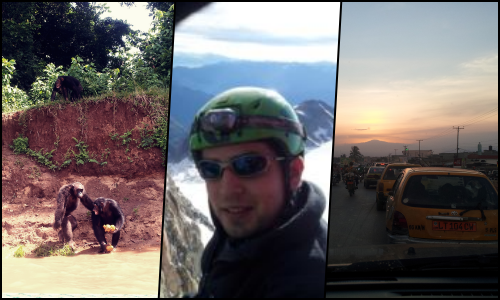About

My name is Hamish Woodrow and I’m a data scientist and engineer brought up in Scotland.
I setup this blog to exhibit some of the technical data science related projects I am working on, mixing data aquisition, modelling/machine learning, to create predictive models. I am also continuing to develop cool ideas related to data exploration and visualisation problems. I like to be polyvalent, combining the laws of physics, data analytics and common sense to provide novel studies in diverse topic areas. Though my particular areas of focus are often around energy, health, social development and anything to do with the UK and Africa (particularly Central Africa).
I have broad set of technical expertise having originally studied Mechanical and Petroleum Engineering in the UK. After this I went off to work for a French company initially living and working in Douala, Cameroon before moving to Port Gentil, Gabon. I spent 4 awesome years working and living in central Africa. My work focussed on production optimisation and modelling, looking to improve efficiency and look for hidden opportunities in our assets, as well as reducing the cost of operations with the objective to get incrasingly leaner. In addition, I had the chance to work on major infrastructure projects doing technical justification as well as liasing and presenting extensively to national governments.
These past 4 years have provided a wealth of technical experience but I also realised that I was coming across a recurring problem: there was an enormous quantity of data around me that often lacked interpretation and technical analysis. As an Engineer, I use physics based models to interpret the data (which is often also a combination of engineering intuition and fundamental physical principals) however, with the 100s of thousands of points a day coming in, how does one filter through all the noise? How does one find the conclusive data? I’ve realised that these questions not only apply to engineers but also to almost every job in every sector. I therefore, appreciated the possibilities with statistics in the context of data science can allow to help with this problem, but more than this simply regressing or completing statistical analysis itself is not the objective, as it neglects all that physics and intuition can help us in deciding not only what occurred in the past but what is "physically possible" not just probable in the future.
Therefore, my ultimate objective is to combine physics, engineering and data science to make it easier for people to have the right data, and use brain power for smart decisions and see the right conclusions!
Anyway i hope you enjoy what you find and don't hesitate to get in contact with me!